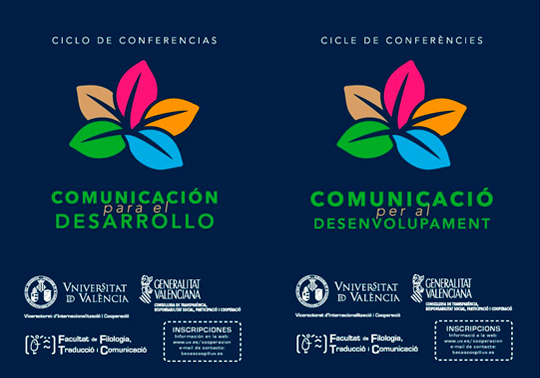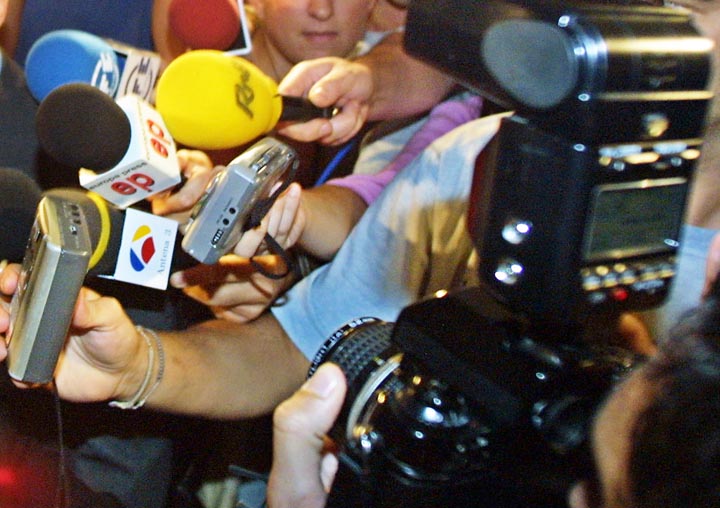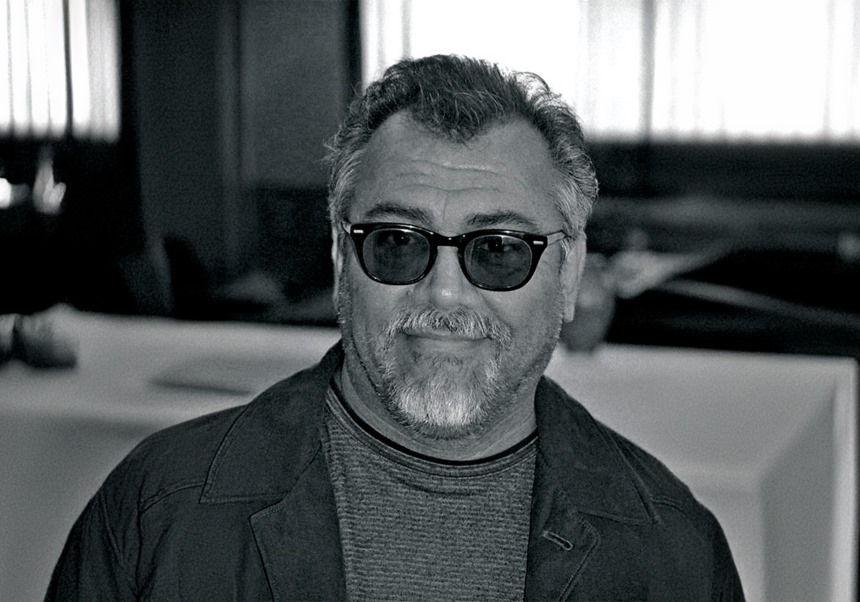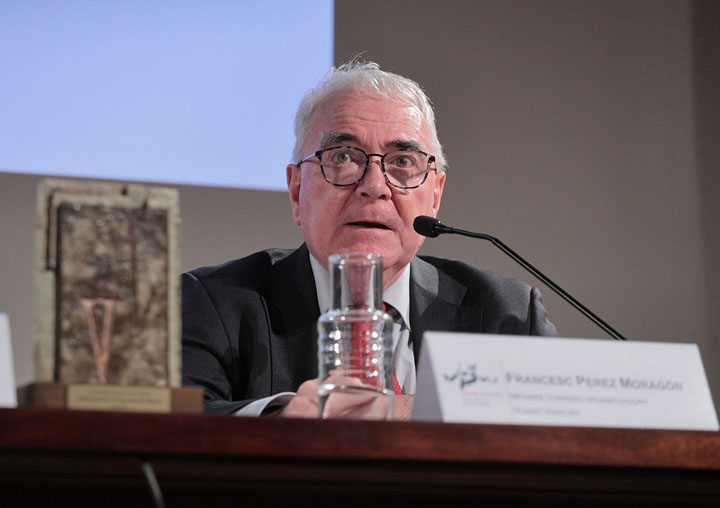Conference about access to information today at the Faculty of Language Studies, Translation and Communication
- May 18th, 2017

The Faculty of Language Studies, Translation and Communication hosts a series of conferences about communication for development. This Thursday it will take place the third session of the series titled ‘El acceso a la información y la comunicación como elementos fundamentales en la gobernabilidad democrática’. It will start at 16:30h at the faculty and count on the participation of Diego Álvarez, David Sandoval, Alessandra Farné and Aitana Mas.
This third session is specially addressed to the social organisations and those people who are worried about driving a more participative democracy in which the citizenship could have the control over public policies.
In this session, participate the following: Diego Álvarez, civic hacker, professor and subdirector of the Open-Government, Communication and Culture at the E.T.S.E.I. Universitat Politècnica de València; J. David Sandoval, responsible of the political impact of Greenpeace-Spain; Alessandra Farné, researcher of the Department of Communication Sciences and of the research group Social Development and Peace of the Universitat Jaume I; and Aitana Mas i Mas, general director of Transparency and Communication of the Valencian Government.
In the previous sessions it has been analysed the importance of the communication as a tool for social transformation and the role of the media in the construction of a citizenship. In both sessions participated Raquel Martínez-Gómez (doctor in Information Sciences and professor of the Faculty of Culture, Latin American Centre of Human Economics, Montevideo-Uruguay), Yolanda Álvarez (journalist, member of the team ‘En portada-TVE’ and former stringer of TVE in Middle East) and Gabriela Sánchez (coordinator of the section Desalambre, eldiario.es).
Raquel Martínez-Gómez emphasised the insistence of the so-called ”information society” over a “communication society”. Thus, the interesting information, the institutional marketing and the social dialogue simulation in a context of limited involvement has restricted the transformative power of the communication that had to be in the middle of the democratic societies. Raquel Martínez-Gómez encouraged to create a new communication system because we live in an emergency setting (poverty and increasing exclusions, global environmental degradation, and conflicts) and some of the main topics such as the wealth distribution, the diversity recognition, the destruction of the biodiversity, and as a consequence, of our environment; are excluded from the informative agencies that generate public opinion.
On the other hand, Yolanda Álvarez has insisted on the role of the journalists as agents of social transformation. Unfortunately, it is important to distinguish between media and journalists because the media has lost credibility in this day and age; has stated Yolanda. The credibility has been called into the question because of the interests of the investors in the private media. The media is each time more focused on small business groups, which are no longer media enterprises. And other reason is the use of public media for the political marketing of the governments. Yolanda Álvarez insisted that it is necessary to demand changes to improve the quality of the media, “we are putting at risk our failure as societies: the citizenship needs media and vice versa”.
Gabriela Sánchez remembered that the media has the ability to determine how people understand the world and, therefore, to generate opinions. For this reason, journalism can change the world in a perspective or another. Gabriela also stated that eldiario.es established some transversal and flashpoint issues (environment, gender violence, racism, corruption, power supervision) in order to be permanently present in its contents. Sánchez insisted on the importance of finding the causes and looking for some responsibles, avoiding the information that appeals to the pity. Furthermore, she also went on about some issues and trying to empathise with the protagonists in order to take care of the language and verify the information provided by some official sources. There are some issues that demonstrate that the public opinion can change and also can modify the reality, said Gabriela in relation to the questions such as evictions and environmental problems, among others.
This series of conferences about communication for the development is organised by the Office of the Vice-Principal for International Relations and Cooperation.
File in: Facultat de Filologia, Traducció i Comunicació , Conferències i debats , Vicerectorat d'Internacionalització i Multilingüisme
















